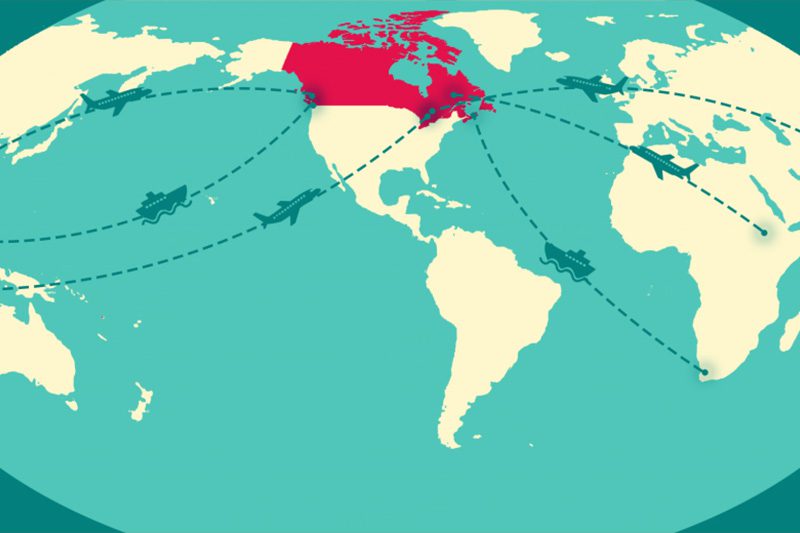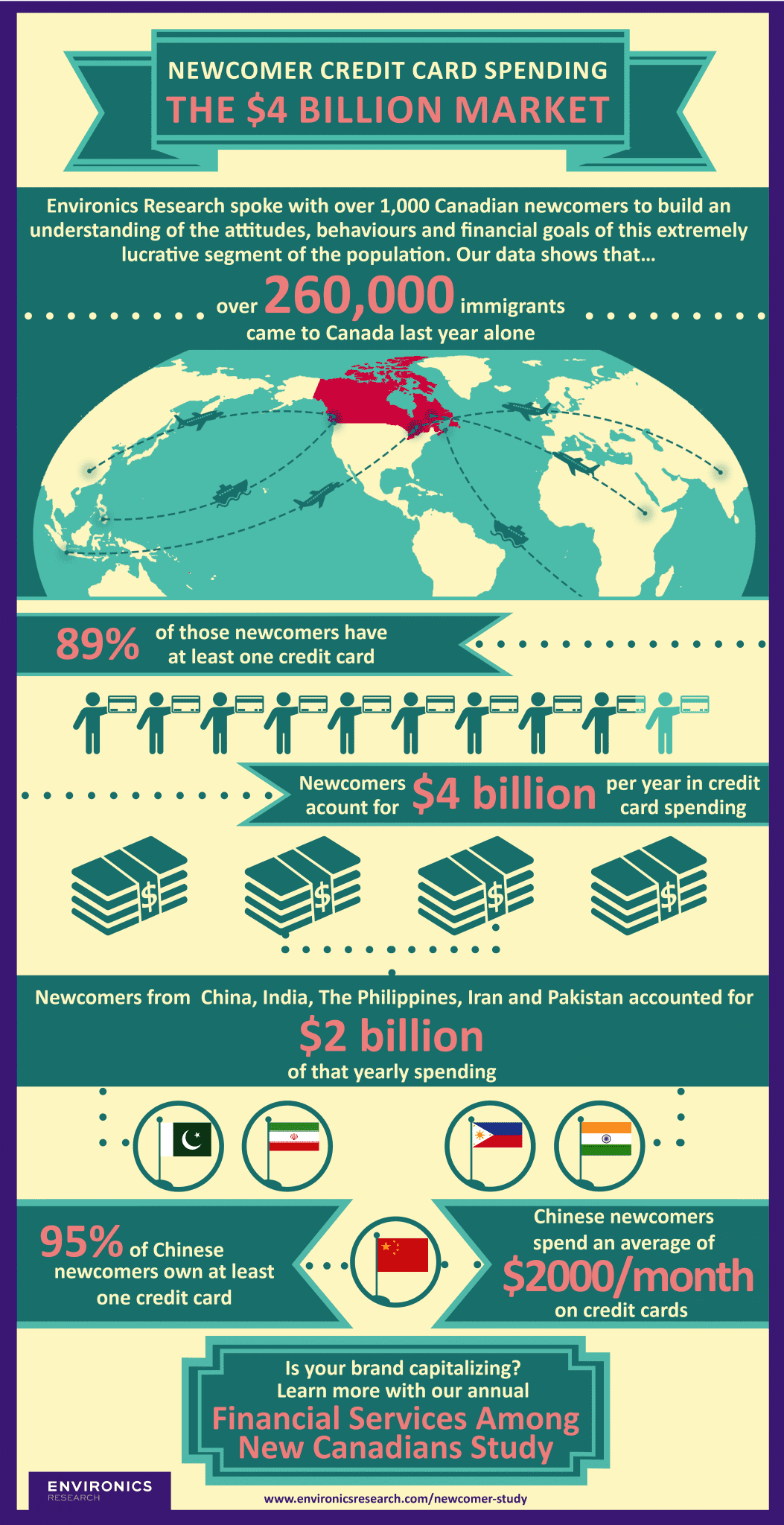Capturing The $4-Billion Credit Card Spending Of Canadian Newcomers

Posted on: Wednesday Nov 25th 2015
Article by: Bernice Cheung
ARTICLE BY
According to data from Environics’ Financial Services Among New Canadians Study, 89% of immigrants who have been in Canada less than 10 years have at least one credit card that they use regularly. With over quarter of a million immigrants coming to Canada last year, this represents a large opportunity for financial institutions.
The top five newcomer source countries – The Philippines, India, China, Iran and Pakistan – brought close to 129,000 immigrants in 2014 to Canada, and represent almost $2 billion spent per year on credit cards. Prepaid credit cards are essential to helping newcomers establish a credit history, especially at a time when they’re purchasing items for their new homes.
New immigrant households differ in that they’re younger, with larger families –composed of aging parents and young children. Only 40% of households headed by a Canadian-born resident have young children, compared to 64% of those in Canada less than five years who do. With aging parents and young children to care for, many immigrants prefer the convenience of credit cards to help manage their finances.
The top five newcomer source countries alone account for $2 billion/year spent on credit cards
Environics’ Financial Services study has shown that 95% of Chinese immigrants own at least one credit card, with a mean monthly spend of $2,000 on those cards. Attitudinally, they also represent a lucrative segment: 83% of Chinese respondents who immigrated in the past three years agree with the statement “Access to credit is important to manage my finances.”
Understanding the nuances of a lucrative customer segment is essential to creating the right strategy. Environics Research interviews over 1,000 new Canadians every year to understand their attitudes, financial goals, product usage behaviours, satisfaction with their financial institutions, and much more.
To learn more about this group of consumers, please contact
Bernice Cheung
, VP Cultural Markets of Environics Research.






